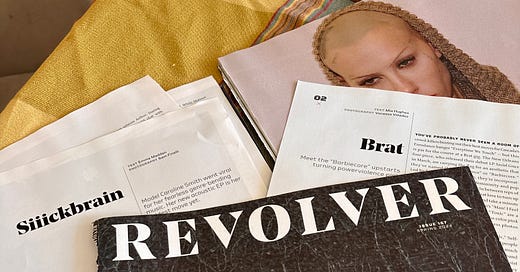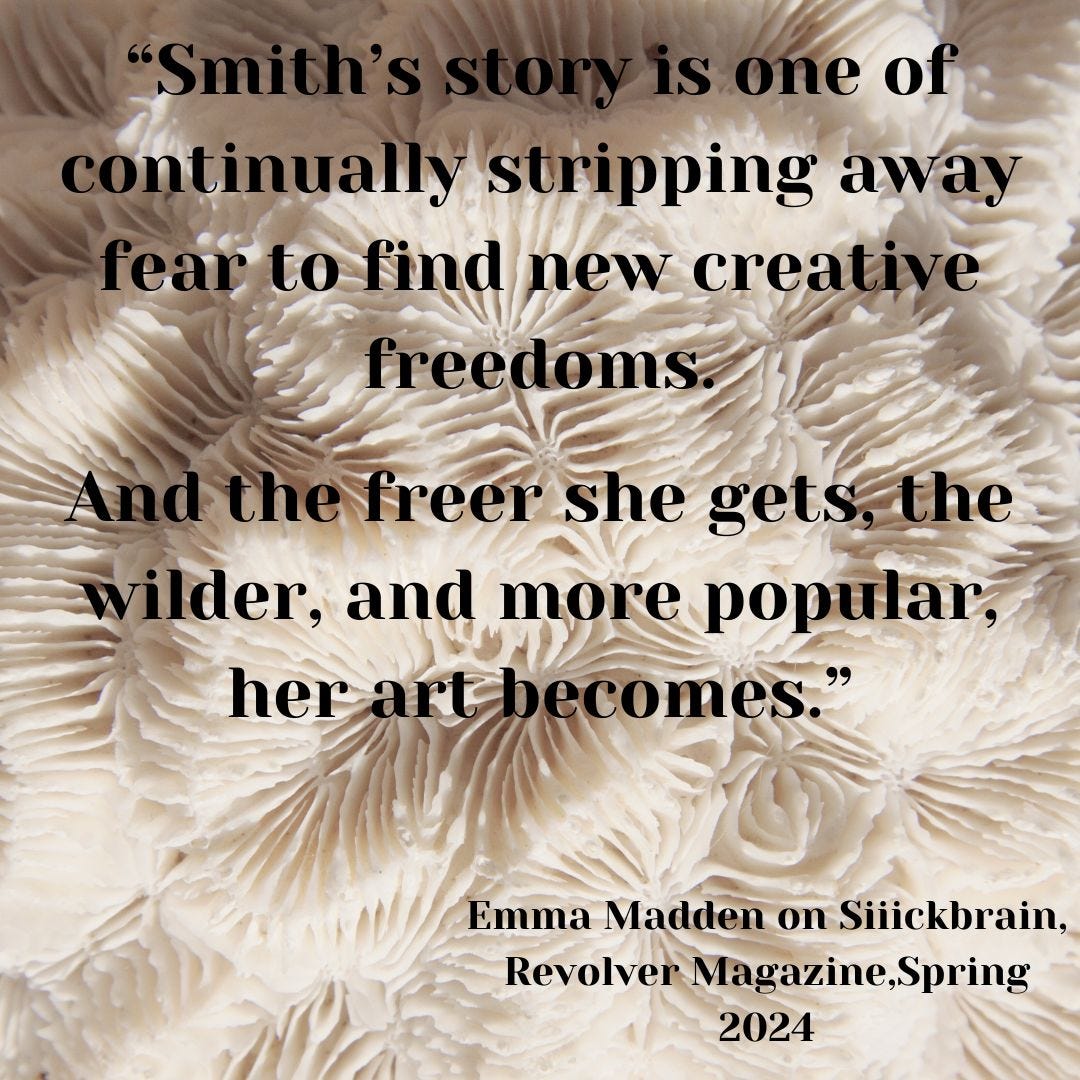Music and Mental Health in Magazines: Revolver Spring 2024
"Smith wrote the songs in her bedroom, transmuting her feelings into furiously immediate tirades. A kind of therapy. A cleanse." - Emma Madden on Siiickbrain
I am a huge fan of print magazines. I have mostly continuously subscribed to at least one since I was a teenager. Back then it was Sassy and Seventeen and Redbook. I’ve gone through a million phases with what I subscribe to and today it’s pretty diverse. There’s just something for me about getting a magazine in the mail and setting aside time to sit down and read it from cover to cover, after which it usually goes into my pile of “cut up and collage with” stuff.
This morning, I was reading the newest issue of Revolver. I don’t listen to metal/hard rock/ hardcore music but I like reading about it. The way music is written about is the way much art is written about and it’s a style I’m trying to absorb as I work towards writing my thesis from a visual analysis lens. But more than that, I just like absorbing information about culture that I’m not typically exposed to so much.
Because I’m so immersed in my own niche of researching the complex relationship between art and mental health, I find things that relate to it in almost everything that I read. I make notes and save them and look back at them trying to uncover patterns and new ideas. I thought today I’d give you a glimpse into that process by sharing the notes that I’ve taken while reading the Spring 2024 issue of Revolver.
My process, loosely:
Read through a magazine and notice themes related to art and mental health.
Go back through and photograph or write down all examples of those themes.
Compile them together.
Put them through my personal framework of how mental health impacts art; I haven’t shown that stage in this post but that’s to come …
Theme of Anxiety
The first thing I noticed was that the topic of anxiety came up often throughout the magazine. In fact, it was subtly there right at the beginning with the letter from the editor which begins, “As I write this, I’ve just survived the Great Eclipse of 2024. The apocalypse did not come.” While not a direct reference to anxiety, this kind of speaks to the widespread freeform anxiety that’s just floating around us all of the time and that we often get tapped into as a result of social media etc. Because I can’t say I followed much about the eclipse at all but I was aware that there were people fearing the apocalypse. Somehow these things just seep into us, and I think it’s important for us to be aware of that so we can mitigate the impact of that anxiety.
Emma Madden begins the article about Caroline Smith, a model who is a musician under the name Siiickbrain, with a poignant paragraph about the artist’s 2016 decision to shave her head, releasing trauma. She goes on to share about the artist’s history with anxiety and agoraphobia after “her idyllic life turned horrific.” Her world shrunk, she had panic attacks where she couldn’t breathe, and she self-isolated into deep loneliness. Through a variety of different things - forcing herself to move to a large city, get therapy, find medication, begin creating - she got to a difference place but the anxiety is still with her. She faced huge performance anxiety when beginning to perform. Challenges in her professional relationships sent her back into isolation and loneliness. But she’s creating, music is offering therapy, and she’s re-emerging.
Another example comes from Mia Hughes article about Gel:
“Most of my life I have struggled to feel a sense of home or security,” front person Sami Kaiser tells Revolver. “I was very fearful of people, especially in public or group settings. This crippling anxiety has and still bubbles to the surface and exacerbates tendencies that may be considered strange.”





